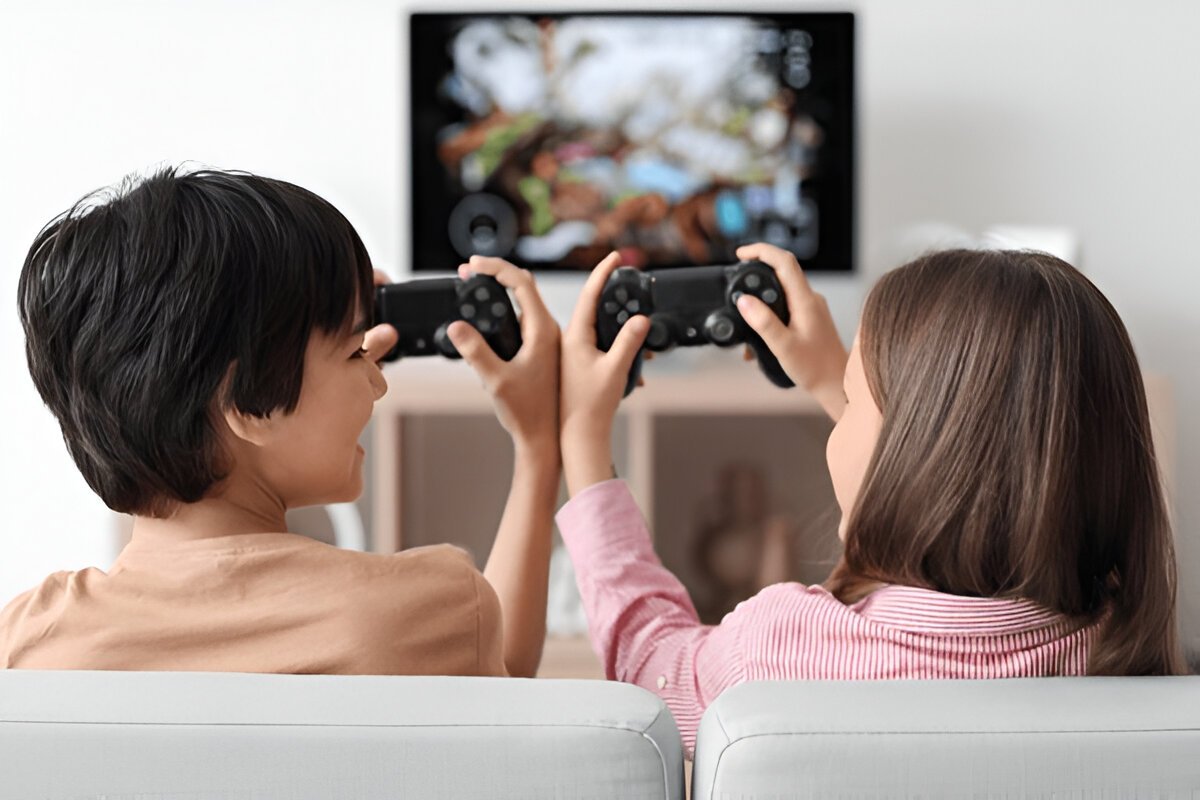As parents, we are certainly entangled in the web of digital entertainment, yet we still possess our innate desire for our children’s growth and development. On one hand, video games are for many people a gray area. The concerns over too much screen time are real and are accepted by many, but there is still a question if these digital games can actually give kids some valuable skills, especially can video games improve problem solving skills in children?, that is an issue that needs an answer. The brief answer? Yes, most definitely, however it doesn’t apply to each game or every child.
In This Article
- Unlocking Cognitive Gears: How video games improve problem solving skills
- Beyond the Screen: How Video Games Improve Problem Solving Skills
- Not All Games Are Equal: Differentiating the Benefits
- The Other Side of the Coin: Addressing Parental Concerns
- Parental Guidance: Encouraging Healthy Gaming Habits
- The Balanced View: A Tool, Not a Master
Unlocking Cognitive Gears: How video games improve problem solving skills

The majority of video games, particularly those designed for players who strategize, are certainly like interactive puzzles which require quick thinking and versatile strategies to be resolved. Just imagine: a child of yours is working with obstacles, resource management, or enemy patterns that are difficult and keep changing. Therefore, they have to come up with a solution immediately. Moreover, it is definitely not an act of mindless button-mashing; instead, the child is actively involved in hypothesis, experimentation, and refinement.
In order to illustrate, in a puzzle-platformer the player might come up with the right series of actions to traverse over a pit of lava or even energize a device. When the player is playing a strategy game, they will probably be trying to decide how best to allocate their resources, plan their attacks and defense besides, forcing themselves to anticipate what the opponent is going to do as well. Skills that might be improved during such tasks can be mentioned in brief as follows:
Analyze Situations
What is the main objective? What are the rules and limitations you have to work with?
Formulate Hypotheses
Brainstorm potential solutions or strategies. What are the different ways this problem could be solved?
Test Solutions
Choose the most promising solution and put it into action. This is the implementation phase.
Evaluate Outcomes
Did your solution work? Was it successful? If not, try to understand exactly why it failed.
Adapt and Learn
Based on the outcome, what will you do differently next time? This closes the loop and improves future attempts.
Such a description of practice is at the heart of any problem solving in various fields, be it the debugging of codes or the unwinding of a complicated math problem.
Beyond the Screen: How Video Games Improve Problem Solving Skills
It might be that you are asking yourself whether these skills really transfer to life outside of the gaming world? The positive aspect here is that a lot of the cognitive abilities, which are practiced during gaming, become to a large extent similar to the ones needed in academic and everyday life situations. As an example, the skill of rapidly processing visual information and reacting under pressure, which is often developed by playing fast-paced action games, can be used for improving reaction times in sports or, even, for safer driving, later on, in life.
Valuable Skills from Gaming
Strategic Thinking
Plan several steps ahead to achieve long-term goals.
Resource Management
Use what you have in the most effective and efficient way.
Decision-Making Under Pressure
Make the right choice when time is short and stakes are high.
Adaptability
Change your plan when faced with unexpected problems.
Such life skills are extremely necessary in various situations beyond the world of computer games and are useful in everything from the management of one’s own finance to the resolution of complicated school assignments.
Not All Games Are Equal: Differentiating the Benefits
The decision to play a certain video game should be made after understanding that seeking a cognitive benefit from a game is not always the case. For example, simple, repetitive games might provide some hand-eye coordination practice, however, they normally don’t activate higher-order problem-solving skills. The real brain-builders are often found in genres like:
🧩 Puzzle Games
These games are designed to test pure logic and problem-solving skills in focused challenges.
⚔️ Strategy Games
These require long-term planning, resource allocation, and logical thinking to outmaneuver opponents.
🛡️ Role-Playing Games (RPGs)
RPGs involve complex quests, character development, and moral dilemmas that require critical thinking and decision-making.
🏗️ Simulation Games
These games challenge you to manage complex systems and find creative solutions to intricate, interconnected problems.
🗺️ Open-World Games
These games foster curiosity, creativity, and problem-solving by giving you a large world with complex objectives to complete.
Thus, when selecting the games for a child, look beyond the flashy graphics and consider the main features: does it encourage them to think, plan, and change their behavior?
The Other Side of the Coin: Addressing Parental Concerns
It would be misleading if I spoke only of the good aspects. Parents have a very good reason to be concerned. Could gaming be a waste of time if not controlled properly? Certainly.
Potential Risks to Be Aware Of
Time Displacement
A shift of time due to gaming can result in less time for homework, exercise, socializing, or sleep.
Addiction Issues
For a small number of people, gaming may lead to uncontrollable behavior that is intense enough to hinder everyday life.
Inappropriate Content
Not all games are for all ages. Exposure to violent or mature themes can be a real concern for children.
Social Isolation
While many games are social, spending too much time playing alone can lead to less face-to-face interaction.
The point is not about blaming video games but acknowledging the fact that they are like any other kind of content: you need to choose what part benifits you.
Parental Guidance: Encouraging Healthy Gaming Habits
In what way then can a child theoretically be fed by the essence of cognitive benefit without turning into the unaware victim of gaming’s evil twins? It is decidedly active participation that matters.
A Parent’s Guide to Healthy Gaming Habits
The Balanced View: A Tool, Not a Master
But, in the end, video games serve as a means to an end. For instance, a hammer can be used to accomplish a great task or wreak havoc, depending on the manner of its handling. If done correctly and with the presence of parent involvement, video games can Improve Problem Solving Skills and be the perfect vehicle for children to develop their problem solving skills, critical thinking, and adaptability. Moreover, they provide a creative and engrossing platform for mental exercises which traditional means at times may fail to offer. Check out Kinzy Club Blogs for more such helpful articles.
Also do check our Kinzy App to create fun memorable stories through our advanced Ai assistant with your kids.





